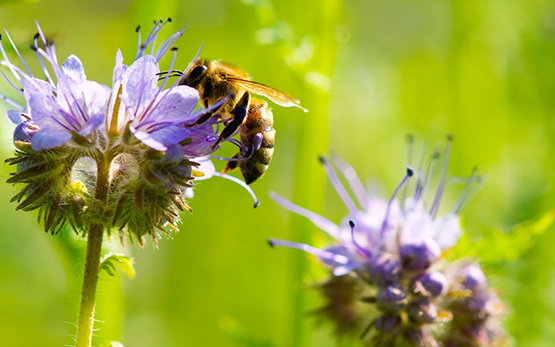Some PPPs can pose a risk to bees due to their toxic effects if they are not used properly. In the risk assessment at Agroscope, the aim is to estimate the expected PPP concentration in the treated field and in the bees’ food resources – so-called exposure – and relating this to bee toxicity. The company requesting the assessment submits studies determining bee toxicity in various trials according to prescribed standard tests. In addition, said company can determine information on PPP residues in pollen and nectar. In the case of a suspected possible negative impact, further semi-field and field trials must be conducted. Depending on the experiment, mortality rate, flight intensity, bee behaviour, brood development and colony development are investigated. Since 2019, Switzerland has required studies with bumble bees in addition to honey bees as part of the approval of plant protection products for applications involving novel active substances.

Links
EPPO database on PP1 standards
OECD Managing Pesticide Risk to Insect Pollinators Risks to Insect Pollinators - OECD
Experimental reports





